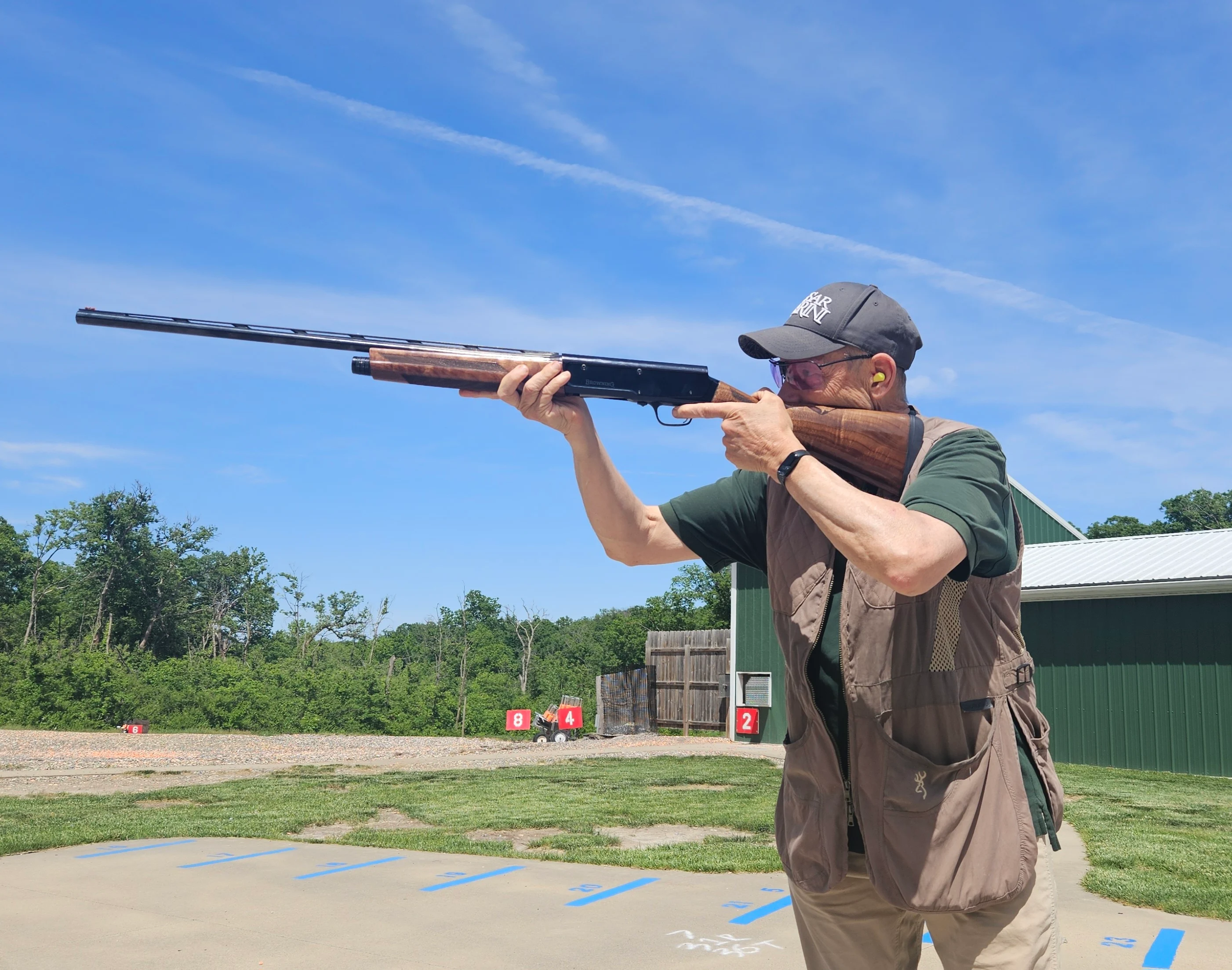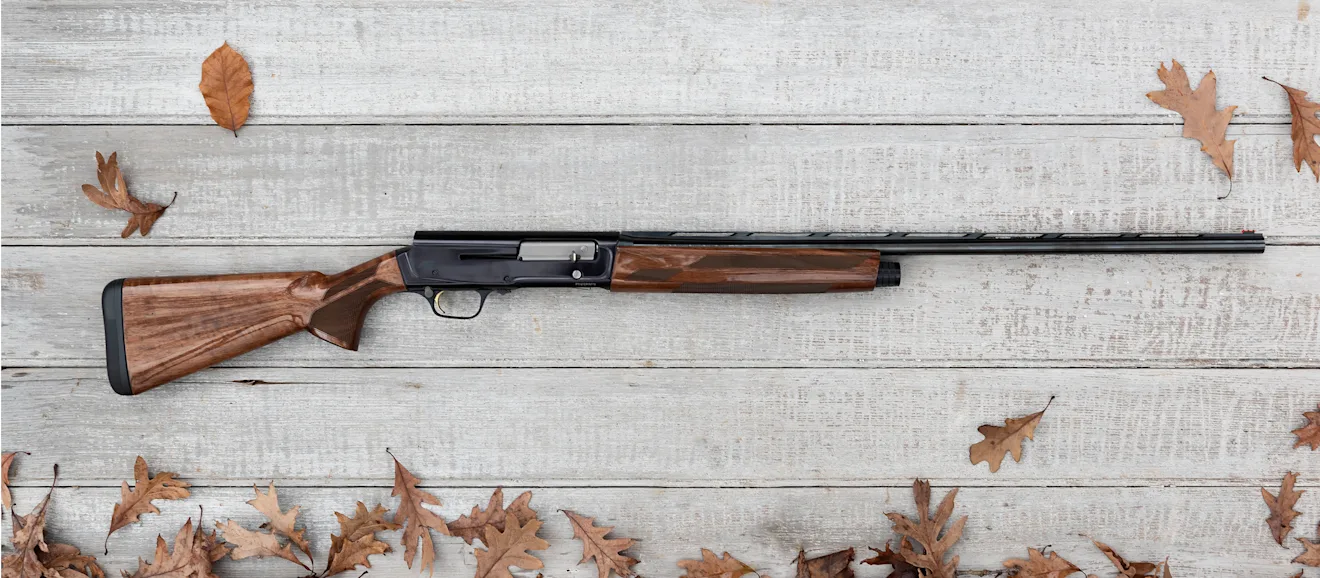When Browning introduced the 12-gauge A5 a dozen or so years ago, a 20-gauge seemed like a natural follow-up. Instead, some marketing genius at Browning realized a Sweet Sixteen version would be pure catnip for upland hunters, and it was. The success of the Sweet Sixteen meant a 20-gauge went on the back burner, where it has been simmering, up until now.
It was worth the wait. I’ve had a chance to shoot one for a while and to give it tough enough workout in the uplands that I put a dent in the rib (not sure how I did that. Sorry!), as well as a dent in local pheasant population, too. Given the choice between the coolness of a 16-gauge and the practicality of the 20, I’d take the 20-gauge every time, because I am soulless and boring that way, but also because this is a terrific small-bore semiauto.
Browning A5 Hunter 20-Gauge Specs
Length: 49.75 inches (with 28-inch barrels and stock spacers in place)
Weight: 5 2/3-pounds
Barrel: 28-inch flat vent rib, small fiber-optic bead, three Invector DS 2 chokes
Action: Inertia semiautomatic
Trigger: 6 pounds, 15 ounces
Capacity: 4+1
Finish: Gloss black receiver, blued barrel
Stock: Gloss walnut
Chambering: 3-inch 20-gauge (16-gauge and 3- and 3 ½-inch 12-gauge models also available)
Price: $1,599
Related: The Best Shotgun of 2024, Tested and Reviewed
Browning A5 Hunter 20-Gauge Overview

The A5, of course, is not the original Auto 5, but an inertia-operated semiauto with the squared-off, humpback receiver of the original. Despite its Benelli-like inertia system, it is very much a Browning semiauto with the level of fit and finish you’d expect from a Browning gun. The stock of the Hunter model has a gloss urethane finish with panels of checkering. They wouldn’t be my first aesthetic choice, but they are well-executed, and they grew on me. The receiver is gloss-black anodized, and the barrel is deeply blued. The butt has Browning’s excellent Inflex 2 recoil pad—which comes in handy on a featherlight inertia gun—and the barrel is threaded for Browning’s Invector DS 2 chokes. It has a flat vent rib and a small, unobtrusive, orange fiber-optic sight. Stock dimensions are 1 ¾ at the comb and 2 inches at the heel, and the gun has a pronounced pistol grip which a lot of hunters like.
The gun has some features developed on other Browning semiautos: the Speed-Load two-piece carrier, the highly convenient “Turn Key” magazine plug that pops out easily if you need to remove it, and, best of all from my left-handed perspective, a very easily-switched, large safety button. The trigger guard is enlarged for easier use with gloves, too.
Test Results from the Range and the Field

My test gun fit me just fine out of the box, and it is shim-adjustable. With a weight of just 5 pounds, 10 ounces with a 28-inch barrel, it was a joy to carry. Recoil was not terrible, due to the soft, thick pad. I shot it on a pattern plate, and it hit about 65/35 (maybe even 60/40) above and below point of aim, which is great for most people and for most types of hunting. It took me a couple of rounds of skeet to get used to it because I usually shoot heavier target and field guns. Once I got more familiar with it, I found it to be great on going away and quartering targets, and tolerable on crossers. While not a gun I would choose for any clay shooting, I could hit skeet targets with it reasonably well.
The going-away and quartering versus crossing shot rule held true in the field, as well. The one bird I scratched down was a medium-distance crosser. (Of course, it could never be my fault I didn’t hit the bird squarely could it?) Otherwise the A5 popped to my shoulder and shot exactly where I wanted it to. Loaded with Boss 7/8 ounce bismuth “Stinger” 5s, it did not seem to recoil at all, and it killed birds cleanly, too. I did shoot a couple birds with 3-inch Winchester bismuth loads, and in the excitement of the flush, I didn’t feel them go off at all either.

Besides the large safety, which I like, the gun also has a nice, big bolt-lock button in front of the trigger guard in place of the little metal tabs on other guns. It’s easy to load; there’s no thumb-pinching and the bolt is easy to pull back, even without an enlarged handle. The trigger is on the heavier side at 6 pounds, 15 ounces, but I was fine with it. All in all, it performed about as well as I could have hoped for on the range, and even better better in the field.
Related: 10 Best Shotguns for Pheasant Hunting
Final Thoughts on the New Browning A5 Hunter 20-Gauge

Pros
Light weight
Good fit and finish
Easy-to-use controls
Cons
Crossing shots require a little more concentration
Possiblity of out-of-battery misfire, though I did not experience it
The A5 is an inertia gun, meaning that there is the possibility of a misfire if you don’t slam the bolt shut and make sure you don’t bump it. Although I have had “click” misfires, I have never had one in the uplands. As long as you keep this gun in its natural habitat—the grouse woods, chukar ridges, quail thickets, and pheasant fields—you shouldn’t have a problem.
As for 20 vs 16, this gun is a couple of ounces lighter than I remember the Sweet 16 as being. With a 3-inch chamber, it can actually shoot steel loads that are a smidge heavier than 16-gauge steel, and 20-gauge ammo is easy to find and more likely to be available for less money. In all, the new A5 Hunter 20 a great addition to Browning’s semiauto lineup—and possibly to your own personal shotgun lineup, too.



